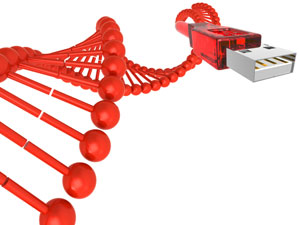Researchers out of the European Bioinformatics Institute are claiming to have successfully encoded 154 Shakespeare sonnets and an MP3 of Martin Luther King’s famed “I Have a Dream”speech into a single DNA strand — or in other words about 739KB of information. Perhaps the most amazing part though, is researchers were able to read those files again with 100 percent accuracy.
The fact DNA can store information is of little surprise; DNA strands are essentially chemical-based instruction manuals for developing highly complex organisms with a seemingly infinite variety of permutations.
“We realized that DNA itself is a really efficient way of storing information,“ one researcher noted.
It was this thinking led the team of scientists to consider using DNA as a digital storage medium. “So over a second beer, we started to write on napkins and sketch out some details of how that might be made to work,“ he continued.
In fact, DNA is so fantastically efficient; researchers believe they can cram about 2.2 petabytes of information into a single gram of DNA.
Importantly, researchers also believe their DNA encoding scheme produces data that is reliable and long-lived. Their methods of DNA-based storage include error-correction and redundancy which protect against data loss. The big drawback though, for now, appears to be price.

